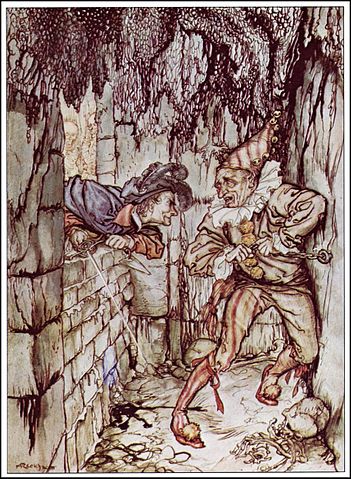
obstaculous
adj. of the nature of an obstacle
sufflaminate
v. to put an obstacle in the way of; to obstruct
intermure
v. to enclose between walls, to wall in
circummure
v. to wall round

obstaculous
adj. of the nature of an obstacle
sufflaminate
v. to put an obstacle in the way of; to obstruct
intermure
v. to enclose between walls, to wall in
circummure
v. to wall round
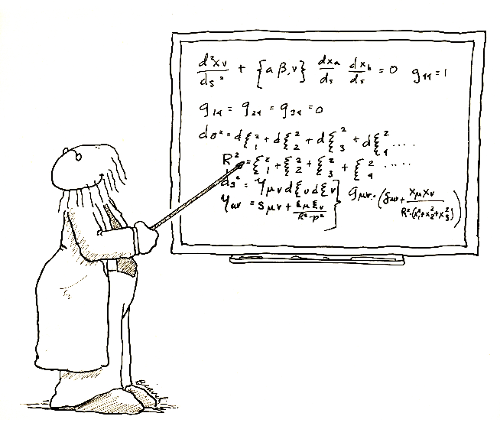
doctiloquent
adj. speaking learnedly

grandinous
adj. full of hail
pseudery
n. intellectual or social pretension or affectation; pseudo-intellectual speech, writing, debate, etc.
literose
adj. pretentiously or affectedly literary
morosoph
n. a learned fool
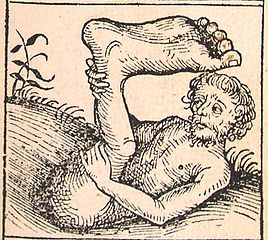
macrotous
adj. having large ears
capitose
adj. large-headed
dolichoderous
adj. long-necked
ventripotent
adj. having a large belly
dolichopodous
adj. having long feet
sciapodous
adj. “That resembles the Sciapodes; having very large feet.”
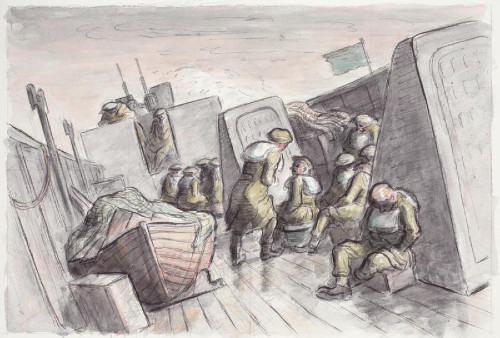
forwallowed
adj. wearied with tossing about
quisquilian
adj. worthless, trivial
noncurantist
adj. marked by indifference
diversivolent
adj. desiring strife
On April 18, 1930, in place of its 6:30 p.m. radio news bulletin, the BBC announced, “Good evening. Today is Good Friday. There is no news.” It filled the time with two minutes of piano music.
In 2010 computer programmer William Tunstall-Pedoe sifted 300 million facts about “people, places, business and events” and determined that April 11, 1954, was the single most boring day in the 20th century.
He told the Telegraph, “Nobody significant died that day, no major events apparently occurred and, although a typical day in the 20th century has many notable people being born, for some reason that day had only one who might make that claim — Abdullah Atalar, a Turkish academic.
“The irony is, though, that — having done the calculation — the day is interesting for being exceptionally boring. Unless, that is, you are Abdullah Atalar.”
(Thanks, Duncan.)
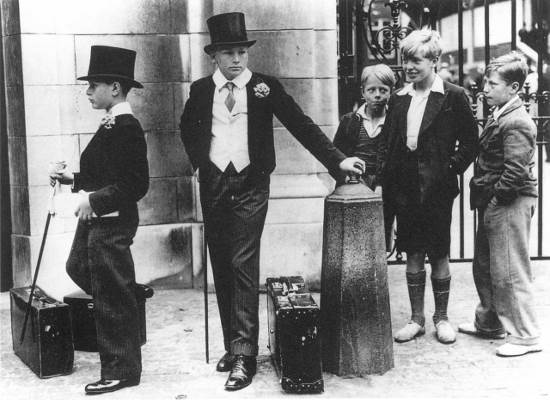
fastuous
adj. haughty, arrogant, pretentious, or showy
alabandical
adj. barbarous, uncivilized
floccipend
v. to regard as insignificant or of no account
In 1937 photographer Jimmy Sime caught sight of five boys outside Lord’s Cricket Ground during the annual Eton vs. Harrow match. Peter Wagner and Tim Dyson were Harrow students awaiting a ride to the Wagners’ country home in Surrey, and George Salmon, Jack Catlin, and George Young were working-class boys who had spent the morning at the dentist and hoped to earn some money running errands at Lord’s.
Sime’s photo filled three columns of the News Chronicle‘s front page on July 10 under the headline “Every Picture Tells a Story.” It has been reprinted widely since as an illustration of the British class system, sometimes with the title Toffs and Toughs.
In 1998, journalist Geoffrey Levy tracked down Young and Salmon, then in their 70s, and asked whether they’d resented the Harrow boys. “Nah,” Young said. “We had our lives, they had theirs.” Salmon said, “In those days you accepted what you were and what they were, and got on with it.”

interfector
n. a death-bringing planet
mundicidious
adj. likely or able to destroy the world
In 2012 an online petition urged the Obama administration to build a Death Star like the one in Star Wars. The campaign amassed 25,000 signatures, enough to require an official response, and it fell to Paul Shawcross, chief of the Science and Space Branch at the Office of Management and Budget, to reject the project. He gave three reasons:
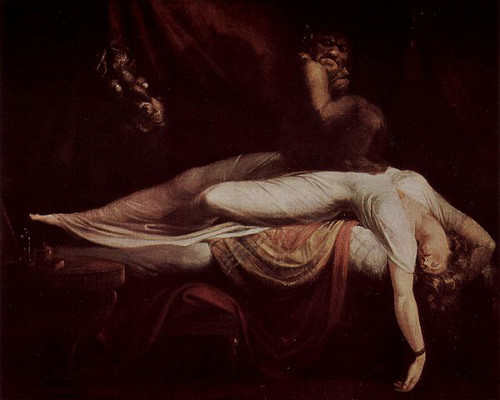
decubation
n. the action of lying down
decubitus
n. the manner or posture of lying in bed